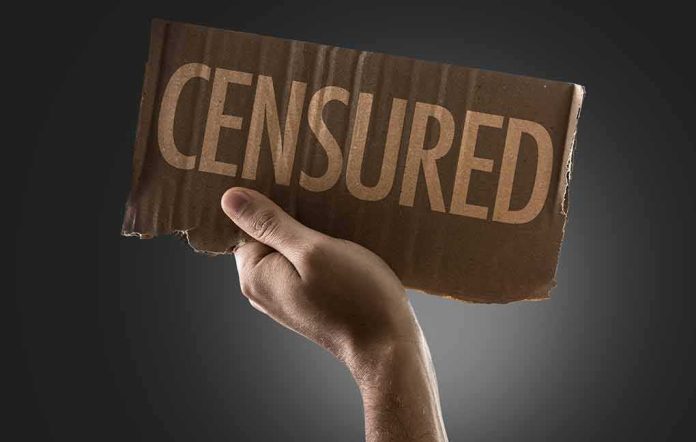
A new censure effort in Congress targets Rep. Rashida Tlaib for remarks at a controversial pro-Palestinian conference, igniting fierce debate over antisemitism, free speech, and the boundaries of acceptable dissent in Washington.
Story Snapshot
- Rep. Rashida Tlaib faces a House censure threat over comments made at the People’s Conference for Palestine.
- GOP lawmakers accuse Tlaib of antisemitism and “celebrating terrorism” following her speech in Detroit.
- The censure reflects deepening polarization over U.S. policy toward Israel and the limits of political speech.
- Conference speakers and organizers have histories of anti-Israel and allegedly antisemitic rhetoric.
Censure Threat Sparks Congressional Division
On September 4, 2025, House Republicans formally introduced a resolution to censure Rep. Rashida Tlaib after her remarks at the People’s Conference for Palestine in Detroit. Tlaib, the only Palestinian-American in Congress and a member of the progressive “Squad,” condemned bipartisan support for Israel amid ongoing conflict in Gaza. GOP leaders argue her comments crossed into antisemitic territory and endangered Jewish Americans, while Democrats remain divided on how to respond. The move intensifies existing partisan rifts and raises questions about the appropriate boundaries of political dissent in the House.
Critics of Tlaib have characterized the Detroit conference—held August 29-31—as a platform for anti-Israel and, by some accounts, antisemitic rhetoric. The event featured speakers including activists and former prisoners, many with controversial histories. Tlaib’s speech, delivered on August 31, called out both major parties for their stance on Israel and urged continued activism. Her statement, “Outside of the decaying halls of the empire in Washington, D.C., we are winning. They are scared,” was cited by opponents as inflammatory and divisive. GOP leaders, notably Rep. Buddy Carter of Georgia, claimed her conduct was “beneath that of a civilized person.”
Political and Social Impact of the Censure Effort
The censure threat against Tlaib marks a new escalation in congressional battles over Middle East policy and American free speech. In the short term, the controversy has heightened partisan tensions and drawn significant media scrutiny to both Tlaib and pro-Palestinian activism nationwide. Long-term effects are expected to include deeper divisions within the Democratic Party, particularly over Israel policy, and the potential for this episode to influence the 2026 midterm elections. Advocates on both sides have mobilized, with pro-Israel groups condemning Tlaib’s remarks as dangerous and pro-Palestinian supporters defending her right to criticize U.S. foreign policy.
Communities most affected by this dispute include Tlaib’s constituents in Michigan, Jewish and Palestinian-American citizens, and members of Congress contending with increased polarization. The controversy has also sparked debates over antisemitism, Islamophobia, and the boundaries of legitimate advocacy. Some analysts warn that repeated use of censure risks politicizing congressional discipline and stifling minority voices, while others argue that firm responses are necessary to uphold standards of decorum and protect vulnerable communities.
Contradictions and Lasting Effects
While all major outlets confirm the facts of the event—Tlaib’s participation, her speech, and the censure threat—interpretations diverge sharply. Conservative media highlight alleged antisemitism and ties to pro-terror rhetoric, while progressive sources frame the conference as a legitimate push for Palestinian rights. The most significant contradiction lies in whether Tlaib’s remarks represent protected criticism of foreign policy or cross the line into hate speech. This debate will likely persist, shaping congressional discourse, advocacy strategies, and party dynamics for years to come.
Democrat Rashida Tlaib Facing Censure Threat over Remarks Made at Pro-Palestinian Conference https://t.co/T2H38twCkm via @BreitbartNews pic.twitter.com/DiVMaTrU3u
— Fearless45 (@Fearless45Trump) September 4, 2025
As the censure resolution awaits consideration, its outcome will set a precedent for how political speech and dissent are handled in an era of heightened partisan division. The episode serves as a reminder of the constitutional protections at stake and the ongoing struggle to balance free expression with responsible leadership in Congress.
Sources:
Meet radical anti-Israel activists joining Squad Dem Tlaib at Detroit confab
Power & Pushback: The People’s Conference for Palestine
Tlaib faces censure threat over remarks at pro-Palestinian conference







